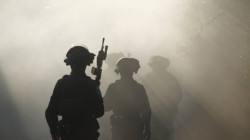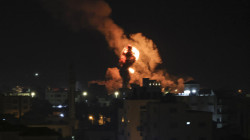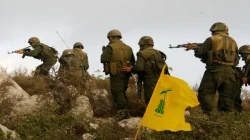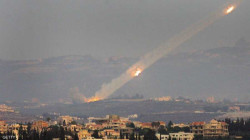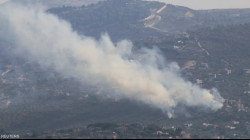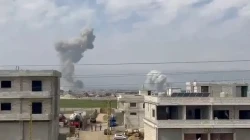Hezbollah strikes intensify as tensions escalate on Israel-Lebanon border
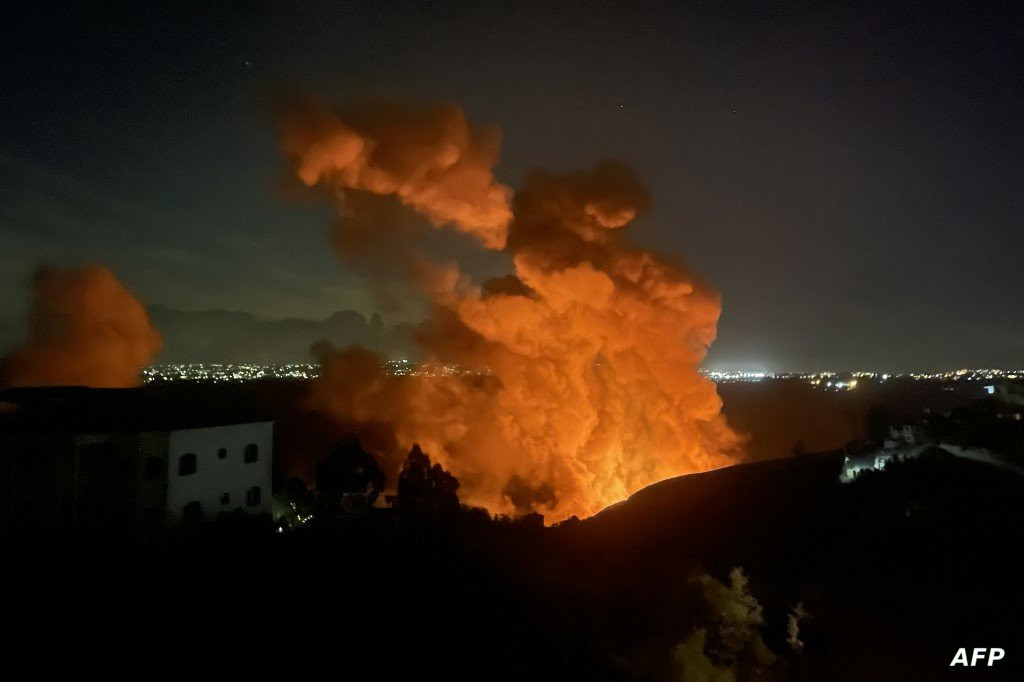
Shafaq News/ Hezbollah launched a barrage of rockets targeting Israeli military installations on Sunday, retaliating against repeated Israeli airstrikes that have struck various regions in Lebanon, killing several civilians.
The Israeli army confirmed that 105 rockets were fired from Lebanon into Israeli territory.
In a series of statements, Hezbollah’s Islamic Resistance group announced that it had targeted several strategic Israeli military sites in response to what they described as a "massacre" by Israeli forces.
The group claimed responsibility for launching dozens of Fadi 1 and Fadi 2 rockets, as well as Katyusha rockets, at Rafael Advanced Defense Systems facilities, which are responsible for producing electronic warfare equipment, in the Zevulun region north of Haifa.
According to Al-Mayadeen, these rockets, which were used for the first time since the conflict began on October 8, came from an underground network of arms depots operated by the group’s "Imad" organization. Despite intense Israeli bombardments, Hezbollah claimed these facilities remained intact.
In addition to the strikes on Haifa, Hezbollah fired heavy rocket salvos at Israeli positions along the western and eastern shores of Lake Tiberias, as well as the Doviv settlement in the Upper Galilee. Israeli air raid sirens were triggered across these areas.
Hezbollah also confirmed that Ramat David Airbase, which Israeli Defense Minister Yoav Gallant recently visited, was struck twice. Gallant had declared during his visit that Israel had entered a "new phase of the war.”
Israeli Agression
On the other hand, Israeli aircraft launched strikes across the southern Lebanese border, targeting valleys, rural areas, and villages in Nabatieh and Tyre, and Iqlim Al-Tuffah, including Aita al-Shaab, Taybah, Ain Qana, and Zawtar, Zrariyeh, Sohmor, Al-Jurmok, Zebdin, Khiam, Ansar, Yatar, and Al-Mahmoudiyah.
Lebanese sources reported that these strikes caused significant damage, though there were no immediate reports of casualties.
The Israeli army said that it destroyed hundreds of launchers for Hezbollah.
Fears of Wider Conflict
Both the US and Israel are exploring ways to decouple Hezbollah’s ongoing operations against Israel from the broader hostilities involving Hamas. However, despite extensive diplomatic efforts by the Biden administration, Hezbollah has yet to agree to any ceasefire deal that would halt hostilities with Israel prior to a ceasefire in Gaza, where Israel had killed more than 41,000 people.
Concerns of a broader war have increased after Hezbollah’s leader, Hassan Nasrallah, described Israel’s recent actions—including the bombing of communication devices and wireless systems that killed dozens of people, including children—as an "unprecedented and historic blow." This was followed by an Israeli airstrike in Beirut that killed Ibrahim Aqil, a senior Hezbollah military commander, along with several other top leaders, including members of the elite Radwan force.
The Biden administration expressed deep concern about the possibility of an all-out war between Israel and Hezbollah, with White House national security adviser Jake Sullivan stating that there is "a real and acute" risk of conflict escalating into full-scale war. He emphasized US efforts to prevent this outcome, including continued diplomatic engagement aimed at de-escalation.
Lebanese Prime Minister Najib Mikati, in light of the escalating tensions, announced that he would cancel his planned trip to the United Nations General Assembly in New York, citing the worsening security situation in Lebanon.
Israeli officials told Axios that their increased attacks on Hezbollah were not intended to provoke a war but to pressure the group into agreeing to a diplomatic solution. Israel believes that further pressure on Hezbollah could force the group into negotiations, particularly with regard to returning displaced civilians to their homes in both northern Israel and southern Lebanon.
US officials revealed to Axios that Israel should refrain from actions like ground invasions or extensive airstrikes in civilian areas that could close off the possibility of diplomatic resolution.
"We want to keep a path open to diplomacy and prevent actions that would shut down any chance of de-escalation," a senior US official said. However, they admitted the challenges in managing the escalation risk.
